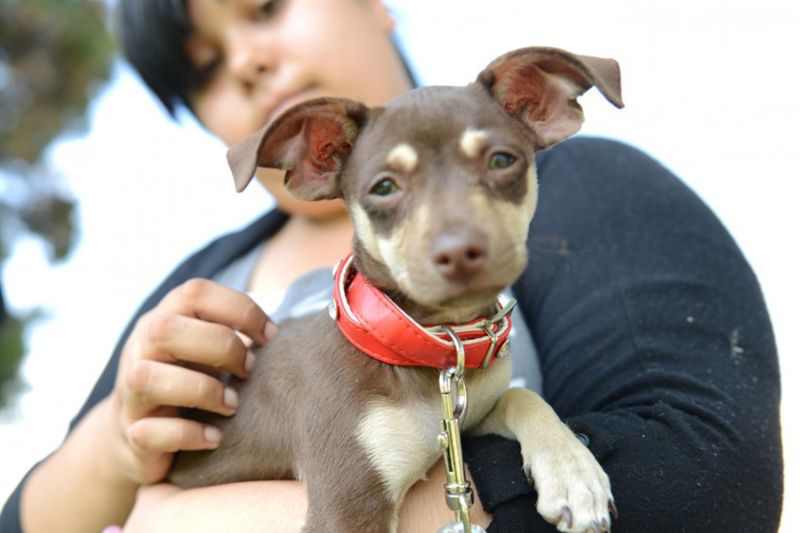Bills, laws and ordinances, oh my!
Policy, like cleaning protocols or a medical suite, is a tool that allows us to better the lives of animals
May 2, 2017

I didn’t grow up interested in politics or the various debates over policy in the ‘90s. To the young me, that all sounded pretty boring and not all that relevant to my life. After all, there weren’t any laws or ordinances preventing school dances, science fairs or hanging out with friends, right?
Times have changed, and I now see the benefits of being engaged with politics. But that change didn’t happen overnight, and it didn’t happen simply because I learned the process of how policy changes happen. What changed was that I found a “why.”
Young me wanted desperately to be a veterinarian. I loved animals, and that was how I envisioned doing the most good—and being the most helpful to animals and of course, that is certainly a wonderful profession and I probably would have been very happy doing that work. However, during college, an animal welfare course opened my eyes to all the other things I could do to make a difference. That class was not about public policy, but it led to graduate school that did have policy as a focus, and a new world opened before my eyes—a very complicated world that still felt very far away and unreachable.
Fast forward into the working world, and I went back to my comfort zone—hands-on animal care, working at a shelter on media, events and programs like humane ed and volunteering. Since my job was a bit of a catch-all, I was also assigned the daunting task of traveling to the Maine State House to testify on occasional bills that impacted the shelter in some way. I believe the first one I testified on related to the state-run spay/neuter program. I was terrified. I had never been in the State House, or spoken with a legislator. I didn’t really know what to expect. I had sat through a Lobby 101 session (and my high school civics class!), so I superficially understood how the process worked, but I didn’t grasp the true nature of policy work until I saw it firsthand.
Those first few bills I testified on were just scratching the surface. I showed up, spoke my piece and sent a follow-up thank you to the legislators I had spoken to. I attended the work session, where the legislators discuss the bill, ask questions, and vote. That was pretty much the extent of my shelter’s involvement and it worked fine. The bills we liked passed, since many of the shelters across the state had gotten involved in the same way, and other folks were doing behind-the-scenes lobbying. Part of me was curious about what was going on in that zone, but I had a lot of other work on my plate and not enough time to do it all. Sound familiar?
You don’t need to read my work history to see where this trajectory is heading. While at the shelter, I found my “why” through two legislative efforts that I now feel so privileged to have been able to work on. The first was the Help Fix ME spay/neuter program, thanks to which we went from seeing people surrender their mom cat and kittens because they couldn’t afford to keep them all or get the surgery for mom; to being able to hand them a voucher for a surgery so that the beloved mom cat could go back home. The other piece of legislation impacted another program I ran at the time, Pets and Women to Safety, which helped victims of domestic violence by providing foster care for their animals until they were back on their feet. Working with these individuals firsthand showed me the need for and the impact of the legislation we passed, legislation that made Maine the first state in the nation to allow pets to be included on protection from abuse orders.
Keep in mind that I got hooked through state legislation, but it could have just as easily been a local ordinance, or even internal organizational policy changes. Because these are all just tools. Policy is a tool, like our cleaning protocols, or medical suite—they allow us to do things to better the lives of animals, but they aren’t in and of themselves the reason why we do the work. Now there may be some veterinarians who get really excited about a brand new, shiny surgical suite, but it is what that suite allows you to do—spay and neuter animals, fix broken limbs, repair injuries, and relieve suffering—that makes that room filled with machines have value. It is the same with policy. A law “on the books” has little meaning except for what it has the power to do for animals or for people.
Policy is a tool that allows us to better protect animals and people, and improve our lifesaving work. From trap/neuter/return to breed-specific issues, from ensuring veterinary access to helping pets in hot cars, policies are impacting our work for better or for worse in every community. Policy is a tool, but it is a big one, and more than one pair of hands is needed to wield it well. I hope you’re all ready to join me! You can start by sharing your “why” below.

